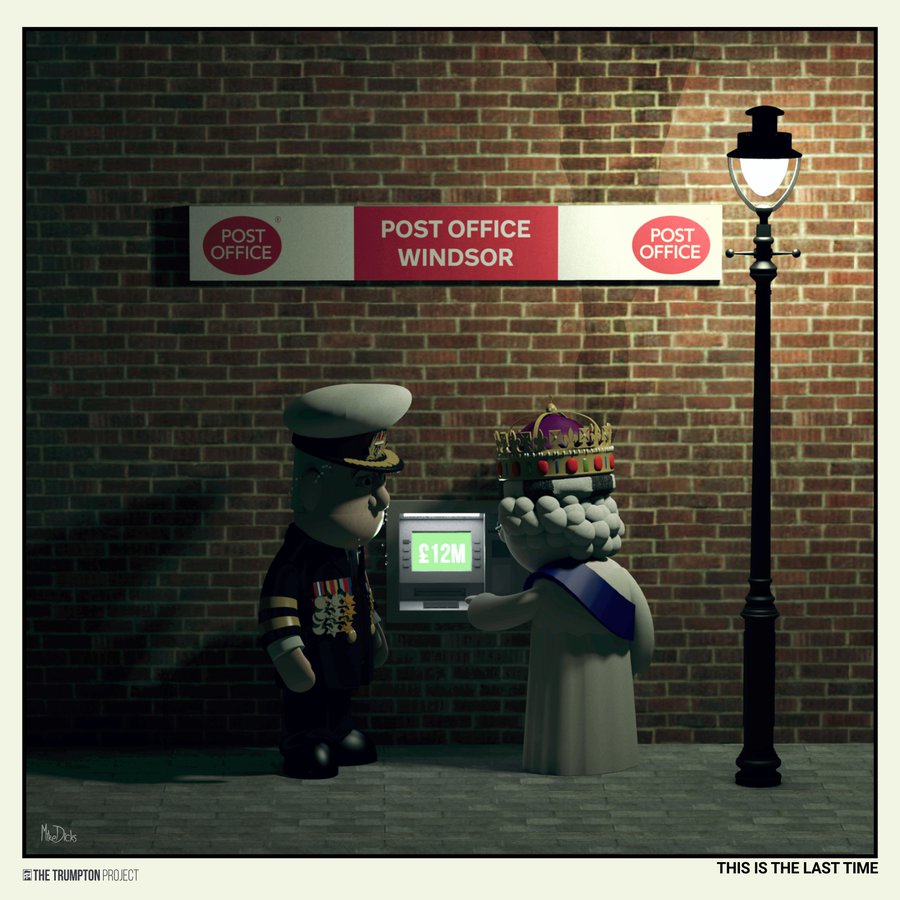
Putin might set a new trend in commercial office decorating: conference tables that begin at Chicago’s lakefront and end somewhere in DuPage County.
That’s an exaggeration of course, but so are claims that Putin’s insane. He’s neither insane nor irrational. For example, Putin knows what he’s doing is wrong. If that were not the case, then he would have no need to create false flag stories about British “crisis actors” staging fake Russian atrocities for the western media, and so on.
But Putin’s sanity and rationality are no guaranty that he’s going to win his war in Ukraine in any sense that we as Americans would understand. His military operations in Ukraine have failed very badly in any number of respects, and Russia doesn’t have the conventional military capacity to completely overrun Ukraine, install its own puppet leader in the old Soviet style, and hold the country.
Putin is a psychopath as opposed to just a typical insane or irrational person. A psychopath can plan things, understand his environment, and act so as to achieve his objectives. A psychopath knows right from wrong, but it makes no difference to him. He feels neither remorse nor regret about anything he’s done. Slaughtering civilians and children, bombing hospitals, whatever he deems necessary he’ll do, and he sees himself as above any conventional sense of morality. Killing someone is no more important to him than deciding whether he’ll have cereal or scrambled eggs for breakfast.
In short, Putin is the geopolitical version of the psychopathic, jilted ex-boyfriend who stalks his ex and won’t stop stalking her until he either gets her back or kills her.
His revanchist idea about dragging Ukraine back into Russia isn’t new. Pan-Slavism as a political ideology goes all the way back to the post-Napoleonic period, and one of its components is the common Eastern Orthodox faith. Americans have a hard time grasping things like pan-ideologies because in this country they’re usually doctrines of the political fringe (see, e.g., Proud Boys). However, neither Pan-Slavism nor any affinity for co-religionists has ever been able to completely extinguish the nationalism of the various individual states that comprise the Slavic world. Sure, Slavs of different nationalities fought under the Austrian flag in the 19th century, but that was because other factors were at work. To Slavs within the Austro-Hungarian Empire, domination by Hungarians (Magyars) would have been worse than domination by the Hapsburgs. In June 1914, Slavic nationalism and its desire to throw off the Austrian chains lit the match that led to World War I. Russia mobilized to protect its fellow Slavs in Serbia from the combined Austro-Hungarian and German Empires.
And just like the Serbians jilted Franz Josef, the Ukrainians have jilted Vladimir Putin. To Putin, Ukraine is the girl who used to be his. Ukraine used to admire Vladimir’s pecs when he went horseback riding with no shirt on. Then she started flirting with westerners. Next she held a wild street party where everybody wore orange. She threw Vlad’s good buddy Viktor Yanukovich out of her house, and for the last eight years he’s had to live in Vlad’s basement. Vladimir’s FSB even showed him a photo of Ukraine hugging NATO, and things might have gone further if he hadn’t stormed into Crimea.
So, like the obsessed, psychopathic ex who just can’t quit his old girlfriend, Putin will pursue her, no matter what. Putin is what you’d get if you turned Jodi Arias into Russia and Travis Alexander into Ukraine. Obsessed ex Jodi Arias killed Travis Alexander rather than let him leave their relationship, and in the same way Putin would sooner destroy Ukraine brick by brick than allow it to fall in love with the West and be a democracy. Like Jodi Arias and other obsessed, psychopathic ex’s, Putin’s bottom line is that if he can’t have Ukraine, then nobody can have Ukraine. That’s why Putin will keep firing missiles and artillery into Ukrainian cities. He knows at some level that he’ll never hold Ukraine in his arms again, but he can sure as hell make the country unlivable. That’s his way of killing his unattainable ex-girlfriend.








